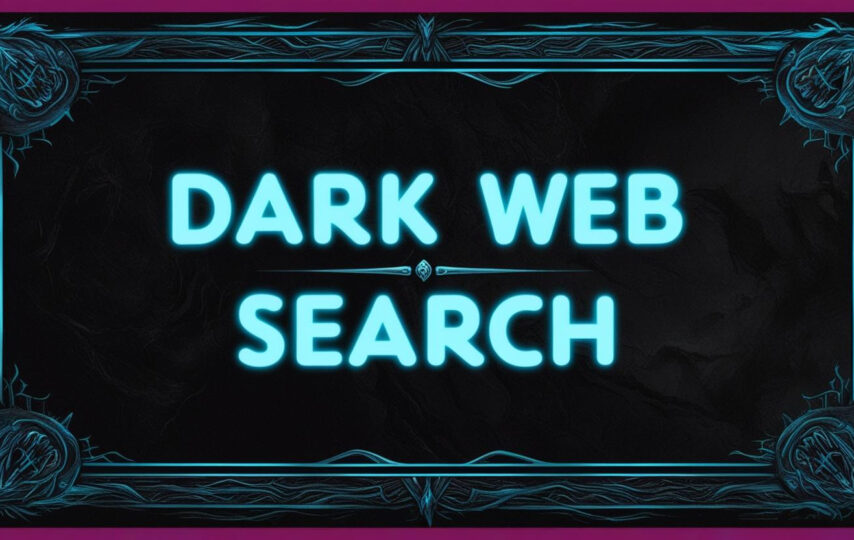Beyond the familiar World Wide Web, there is something called the dark web, which is home to many sites that lurk in shadows. Wishing to discover this parallel world? It will take specific search engines and a pinch of bravery (and a lot of safety measures). It’s like exploring the depths of the internet – but instead of a headlamp, a VPN will come in handy. Do you believe the dark web is nothing more than an online version of a dark alley? Think again! Although it has its dark alleys, this hidden internet is also a safe haven for journalists, whistle blowers and freedom fighters.
Is it legal to use a dark web search engine?
Welcome to the Wild West of the Web’s Underbelly: a place where using special browsers is perfectly fine (unless you’re in Russia or China, who’ve given Tor the digital equivalent of a “Do Not Enter” sign). While surfing these shadowy corners isn’t illegal in most places, don’t get any bright ideas – criminal acts are still criminal, whether they’re committed on Main Street or in the internet’s back alleys. Consider yourself warned: some digital neighbourhoods might get you in hot water.
Think of the dark web as the internet’s sketchy neighbourhood where even the street signs might steal your wallet. Sure, you can visit – but would you really hang out in a digital back alley where cyber-crooks peddle everything from bootleg movies to digital lockpicks? Every click is like playing digital Russian roulette with your device’s health. And those innocent-looking onion links? They might just be serving up a spicy cocktail of malware with a side of identity theft. Consider yourself warned: this isn’t your grandmother’s internet.
10 Best search engines to Search the Dark Web in 2025
1. DuckDuckGo
Say hello to DuckDuckGo – the Google copycat of the dark web that has become Tor’s best friend. It has the simple beauty of a place you’ve been to before but in an alternate reality version of your favorite coffee shop. This feathered friend doesn’t care where it waddles – it will be quite comfortable in the dark web and the regular internet alike. But here’s the kicker: unlike your neighbor who loves to gossip, DuckDuckGo does not spill secrets like a spy. Zero logs, no tracking, no trace of your digital footprint. Combine it with a private window and you get a privacy combination that would make even James Bond green with envy.
2. Torch
Just like that wise old doorman who knows all the back doors, Torch has been patrolling the Tor network before it was even hipster. Not only does it perform searches faster than a cat chasing a laser pointer, but it also make sure that your privacy is protected. No tracking, no censorship, just free and unrestricted freedom of the digital world.
3. Ahmia
Ahmia is like a bouncer of the dark web with a heart that is made of gold. Whereas other search engines may allow any Tom, Dick or Harry into their home, this cyber cop keeps out the riff raff and the hackers carrying viruses. It’s like your friendly browser add-on for the regular Chrome that helps you safely use Tor’s hidden onion services.
4. Haystak
Haystak is the heavyweight champion of the dark web search engines and has a staggering 1.5 billion indexed pages. While the free version occasionally winks at you with ads, the premium version is all about the royal treatment – providing the ability to travel through time and view website histories and juicy data analysis.
5. Not Evil
Not Evil is the cheeky rebel that turned Google’s famous motto into its name – and actually stuck to it! This ad-free, track-free search engine is like the friendly neighborhood guide to Tor’s labyrinth, with a whopping 32 million websites up its sleeve. Run by digital do-gooders and maintained by volunteer vigilantes who keep the riffraff out, it’s proof that not everything with “Evil” in its name is actually evil. Who knew?
6. Candle
Candle is the dark web equivalent of a simple monk – it is a search engine that does not need to show hundreds of results – it is more than enough to provide ten relevant links to a query. It currently boasts over 100,000 pages in its index, which means it’s like having a guide who knows both the museums and the seedier side of the internet. Oh, just one piece of advice – don’t forget your VPN – this particular candle seems to draw some rather strange visitors. And watch those elegant accents – this engine likes its queries plain and simple, no extra parentheses added.
7. Kilos
Kilos is a search engine that boldly goes where Google won’t. Think of it as the rebellious cousin of traditional search, specializing in dark web marketplaces and making no apologies about serving up unfiltered access to shadowy corners of the internet. While this brazen approach has made it the go-to for black market browsing, users should remember that swimming with sharks comes with obvious risks.
8. LibreY
Image source: threatmon.io
LibreY is the privacy-obsessed search engine that treats JavaScript like a vampire treats garlic. This dark web dynamo plays matchmaker by coupling results from mainstream giants like Google with privacy-focused engines like DuckDuckGo. It’s essentially the Swiss Army knife of dark web searching – whether you’re hunting for images, text, or torrents. Think of it as training wheels for dark web newbies, minus the awkward tracking cookies that follow you around like a clingy ex. A one-stop shop for those who take their privacy with a side of convenience.
9. Toorgle
In the vast digital cosmos, search engines are like cosmic tour guides, helping netizens navigate the endless expanse of websites. Enter Toorgle, a specialized search tool that’s essentially the telescope of the internet, focusing on corners of the web that regular search engines might miss. While most search tools require specific browsers to work their magic, Toorgle breaks from tradition by offering a direct window into search results. Think of it as the Swiss Army knife of web searching – streamlined, efficient, and privacy-conscious.
10. Dark Search
Think you’ve stumbled into Google’s evil twin? Meet Dark Search, the rebel of web browsers that’s turning heads with its “what happens in the dark web, stays in the dark web” approach. No tracking, no history, no questions asked. Plus, users can play digital vigilante by reporting sketchy content. Simple, secure, and surprisingly legal.
Conclusion
Well there you have it folks – your map to the uncharted territories of the world wide web! Despite the fact that the dark web seems to be something akin to a seedy back street, these search engines are actually more like experienced tour operators who are going to help you explore this rather shady area. Just remember: pack your digital safety gear (VPN, anyone?), keep your wits about you, and maybe don’t click on anything that looks like it belongs in an internet horror story. Besides, the dark web is like Fight Club – it is very interesting to watch, but you will not want to go there without some rules to follow.
FAQs
Q1: Is it legal to use dark web search engines?
Yes, it is legal to use the dark web search engines– just as it is legal to wear a trench coat and sunglasses even though you look suspicious! The search engines themselves are not bad and are used by journalists, privacy activists and those who want to avoid censorship. However, it’s what you do on the dark web that counts. Think of it like a car: driving is allowed, but using it to pull off a bank robbery? Not so much.
Q2: Do I need special software to access these search engines?
Many of the dark web search engines are only accessible through the Tor browser – it is your backstage pass to the internet’s secret show. Some of the engines, such as Ahmia, can be used with ordinary browsers, but for the full experience and protection, you’ll need Tor.
Q3: Are dark web search engines safe to use?
To put it in the terms of any other walk through any unknown area, it’s all about precaution. Always use a VPN (your digital bodyguard), update your Tor browser (like getting your shots before traveling), and do not give out personal information (would you give your house keys to a stranger?). These search engines are generally safe, but remember: they are the bridge that leads to the better and the worse part of the dark web.
Q4: Why can’t I just use Google for the dark web?
Web search engines like Google are like tourists with a map of Manhattan – they only know about the popular places. Dark web search engines, in fact, are more like locals who are fully aware of all the backstreets and alleys. They are intended to search .onion domains and encrypted contents that normal search engine cannot (or will not) search.








